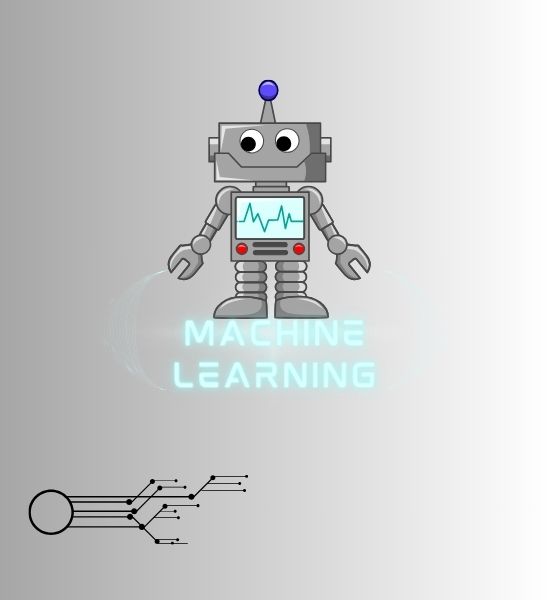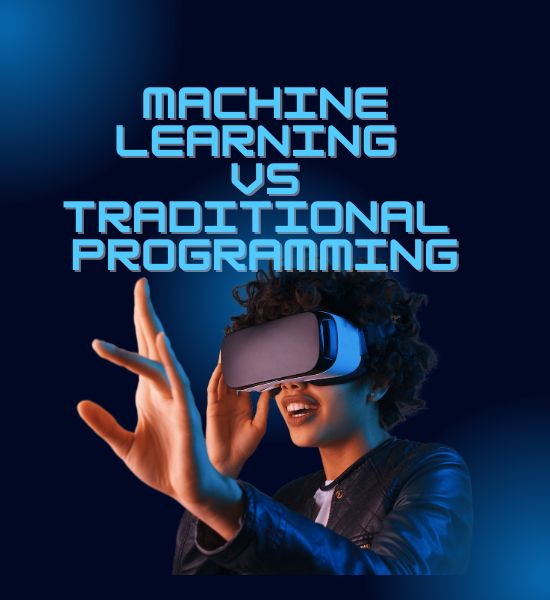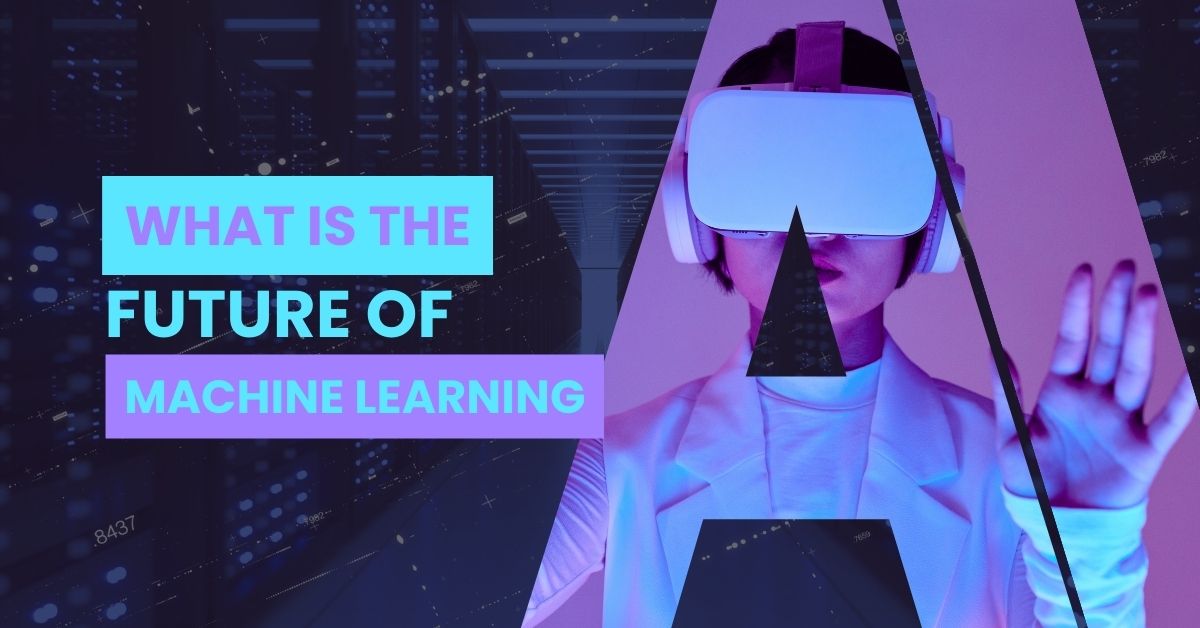What are you expecting from the future of machine learning? Read the detailed blog about the future of machine learning and its exciting trends in 2024.

Future of Machine Learning
Machine learning is a fast-growing field that has immense potential for the future. The future of machine learning is a topic of great interest and speculation.
What is the future of machine learning in 2024 and beyond?
The future of machine learning is expected to bring about comprehensive and robust intelligent systems, personalized customer experiences, distributed machine learning, increased application of machine learning, and other features.
As machine learning continues to evolve and integrate into our lives, it will be important to remain vigilant about the ethical implications and to ensure that the benefits are shared equitably.
Why is machine learning important?
Machine learning algorithms can analyze and interpret complex data sets more efficiently than humans, leading to more accurate decision-making processes.
Machine learning can be used to create more personalized and effective prevention plans for individual patients.

Machine learning can be used to automate lower-value tasks, freeing up time for humans to focus on more complex and creative tasks.
Machine learning is used to solve issues, enhance business processes, and automate processes.
Key Points About The Future Of Machine Learning
- Comprehensive and Robust Intelligent Systems: The future of artificial intelligence is about creating comprehensive and robust intelligent systems with the help of advanced machine learning techniques.
- Machine Learning in Healthcare: Machine learning in healthcare could accelerate medical research and improve treatment outcomes.
- Personalized Customer Experience: Machine learning algorithms can create adaptive, personally tailored customer experiences, such as individualized promotions.
- Distributed Machine Learning: There will be significant advancements in distributed machine learning where scientists will no longer reinvent algorithms from scratch for each platform.
- Increased Application of Machine Learning: The future of machine learning clearly indicates the increased application of machine learning across various industry verticals.

- Ethical Concerns: Adopting machine learning raises pressing ethical concerns, such as algorithmic bias and data privacy.
- Continued Growth and Adoption: Machine learning will continue to gain traction and be adopted across industries.
- Human-Machine Collaboration: The future of ML will emphasize the collaboration between humans and machines.
Real-World Applications of Machine Learning
Machine learning is a powerful technology that has many real-world applications across various industries. Here are a few examples of what machine learning can do in the real world:
1. Facial Recognition: Machine learning algorithms can be used for facial recognition, which has applications in law enforcement, security, and healthcare.
2. Product Recommendations: Machine learning algorithms can be used to provide personalized product recommendations to customers, leading to increased sales and customer satisfaction.
3. Email Automation and Spam Filtering: Machine learning algorithms can be used to automate email responses and filter out spam emails, leading to increased efficiency and productivity.
4. Financial Accuracy: Machine learning algorithms can be used to improve financial accuracy, such as fraud detection and credit decisions.

5. Medical Diagnosis: Machine learning algorithms can be used to assist in medical diagnosis, leading to earlier detection of abnormalities and improved treatment outcomes.
6. Image Recognition: Machine learning algorithms can be used for image recognition, such as identifying objects, persons, and places in digital images.
7. Speech Recognition: Machine learning algorithms can be used for speech recognition, such as virtual assistants like Siri and Alexa.
8. Social Media Connections: Machine learning algorithms can be used to suggest friends and followers on social media platforms, leading to increased engagement and user satisfaction.
How is machine learning different from traditional programming?
Machine learning (ML) differs from traditional programming in several fundamental ways:
| Rule-based vs. Data-driven | Traditional programming involves explicitly coding a set of rules and instructions for a computer to follow. The programmer defines the logic and conditions for the program’s behavior. In contrast, ML is data-driven. |
| Generalization vs. Specific Instructions | Traditional programming is designed to follow specific instructions and perform tasks as programmed. ML, on the other hand, aims to generalize from examples and learn underlying patterns. |
| Adaptability vs. Static Code | Traditional programs are typically static and require manual updates or modifications to accommodate changes or new scenarios. In contrast, ML models can adapt to and learn from new data without requiring explicit modifications to the code. |
| Human Expertise vs. Automated Learning | Traditional programming relies on human expertise and domain knowledge to design algorithms and write code. ML, on the other hand, automates the learning process to discover patterns and extract insights from data. |
| Feedback Loop | In traditional programming, the programmer writes code, executes it, and observes the output. In ML, there is an iterative feedback loop. |

How Does Machine Learning Use Fraud Detection?
Machine learning algorithms can be trained with historical data about previous examples of fraud and autonomously understand the characteristic patterns of these events to recognize them.
Machine learning algorithms can be used to detect fraudulent transactions in financial services, such as credit card fraud, money laundering, and identity theft. New transactions or activities are continuously monitored.
Machine learning is a powerful tool for fraud detection, and it has many real-world applications across various industries. The ML models learn patterns and relationships between the features and the fraud labels during the training process.
ML algorithms and fraud detection systems can analyze large volumes of data, identify complex patterns, and detect anomalies or suspicious activities more effectively than traditional rule-based approaches.
READ-MORE: Future of Machine Learning – Exciting Trends 2024FAQ: The Future of Machine Learning
Does the future of machine learning evolve more?
Yes, the future of machine learning is expected to evolve more in the coming years. The future of machine learning clearly indicates the increased application of machine learning across various industries. ML algorithms can help you create personalized, adaptive experiences for your customers.
Is machine learning helpful in the healthcare and medical industries?
Yes, machine learning is helpful in the healthcare industry. One of the chief machine learning applications in healthcare is the identification and diagnosis of diseases and ailments that are otherwise considered hard to diagnose.
This content is provided purely for informational purposes. contact us by email.
Follow us on Facebook and Pinterest.

